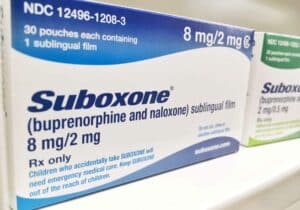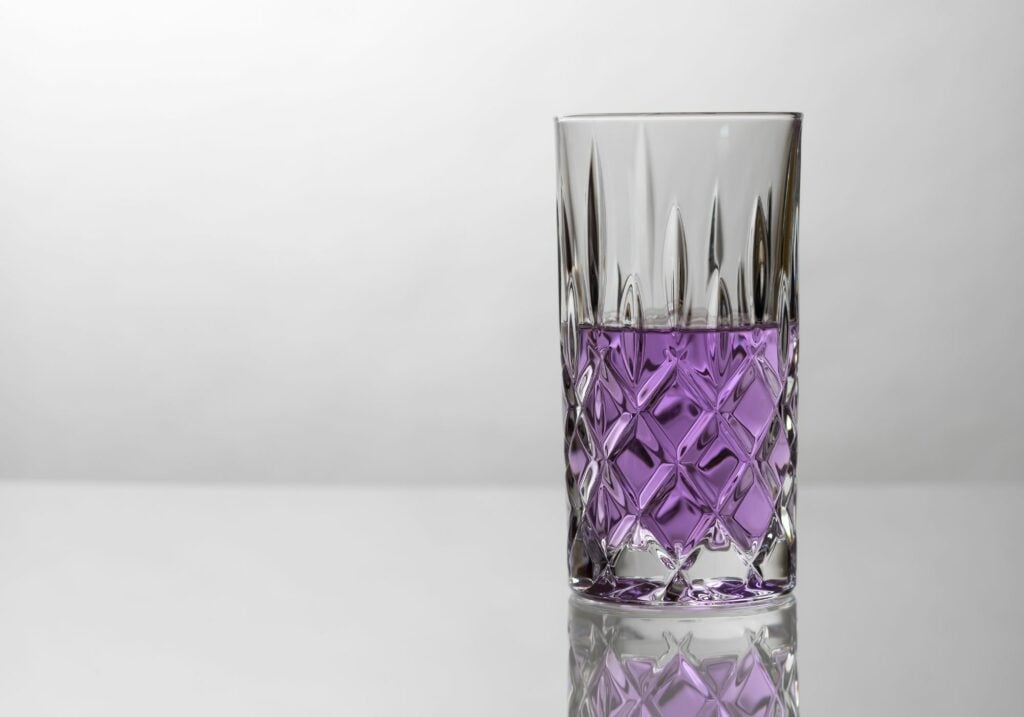What is Lean Drink?
Lean, often referred to as Purple Drank or Sizzurp, is a concoction that blends codeine and promethazine (an antihistamine) with soda, cough syrup, candy, and sometimes alcohol. This mixture is not only highly addictive but also poses severe health risks to its users, including respiratory depression, overdose, and even death.
Originating in the 1960s, Lean gained significant traction in the late 1990s, propelled into the spotlight by mentions in rap music. Its popularity has since escalated among younger audiences, despite the well-documented adverse effects associated with its consumption.
What is Lean and How Does Abuse of It Affect You?
Lean, often referred to for the physical slouch or lean it induces in its users, is a concoction that poses significant health risks. The primary ingredient, codeine, shares addictive qualities with other opioids. The onset of Lean’s effects typically occurs within 30 to 45 minutes of consumption, reaching its peak between one to two hours and lasting up to six hours. Among its side effects are:
- Seizures
- Memory loss
- Dizziness
- Urinary tract infections
- Slowed respiration
- Blurred vision
The Dangers of Drinking Lean
The habitual consumption of Lean can lead to an increased tolerance, compelling the body to rely heavily on this external substance for opioid production. This dependency escalates the need for higher doses to achieve the desired effects or to feel “normal.” The consequences of Lean misuse extend to severe health issues and potentially fatal overdoses. Excessive intake overwhelms the brain with opioid molecules, impairing its ability to manage their impact, notably reducing the breathing rate to dangerous levels. This can swiftly transition to an inability to breathe, depriving the brain of oxygen. Brain damage or death can occur within minutes of oxygen deprivation, potentially resulting in comatose states or fatality.
What Substances are in a Lean Drink?
Lean, also known as Purple Drank, Sizzurp, or Dirty Sprite, is a recreational concoction that combines soda (Sprite, 7-Up, or Mountain Dew) with over-the-counter cough syrups containing promethazine, an antihistamine, and codeine. This blend, often sweetened with hard candy, creates a purple mixture consumed for its euphoric and dissociative effects.
Codeine, a key ingredient in Lean, is utilized medically for its cough suppressant, anti-diarrheal, and analgesic properties. Classified as a Schedule II substance, codeine carries a significant risk for abuse and dependency, with formulations containing 90 milligrams or less per dosage unit falling under the slightly less restrictive Schedule III category.
The drink gained notoriety in the late 1990s, with its rise fueled by mentions in the rap and hip-hop scene, particularly by artists from Houston. These references often overlooked the severe health risks associated with Lean, leading to a misguided perception of safety among young listeners. Tragically, the dangers of Lean have been underscored by the premature deaths of several artists linked to its use.
Lean is known by various names, including:
- Purple Drank
- Texas Tea
- Sizzurp
- Dirty Sprite
- Purple Lean
The sedative effects of Lean, masked by its sweet taste, can creep up on users, encouraging excessive consumption.
Typical effects experienced from Lean include:
- Euphoria
- Dissociative sensations
- Dream-like states
- Relaxation
Despite its risks, Lean continues to appeal to teenagers and young adults, often mixed with other substances like marijuana or alcohol to amplify the high. However, at high doses, Lean’s ability to depress the central nervous system can be lethal, potentially leading to respiratory failure or death as highlighted by the National Institute on Drug Abuse.
Recognizing Lean Use in Teens
Lean’s popularity among teens and young adults raises alarm for parents. If you suspect your child is experimenting with Lean, observe these indicators:
- Medicine Cabinet Discrepancies: Essential ingredients for Lean, like antihistamines (e.g., Promethazine) and cough syrups, may start disappearing. Keep an eye on household medications and alcohol, as they might be used to enhance Lean’s effects.
- Drug-Specific Language: Familiarize yourself with slang related to Lean, including “Purple Drank,” “Sizzurp,” “Dirty Sprite,” and terms related to usage like “Robotripping” or “Dexing.” Online or in conversations, watch for these terms and emojis like grapes, purple hearts, and baby bottles indicating Lean discussion.
- Behavioral Shifts: Significant changes in mood or behavior, such as aggression, increased sleep, new social circles, loss of interest in hobbies, and unexplained weight loss, may signal Lean use.
These signs can help parents detect potential Lean use, prompting conversations about drug use and seeking professional help if needed.
Is Purple Drank The Same As Lean?
Lean is known by several monikers, with “Purple Drank” being among the most recognized. Other aliases include “Dirty Sprite,” “oil,” “mud,” and names of popular brands like Wockhardt, Tris, and Actavis. Despite the variety in terminology, these all refer to the same substance.
What Does Lean Feels Like?
Users of lean often describe sensations of mild euphoria, relaxation, drowsiness, and a dream-like state. It may also lead to a dissociative experience, impairing motor skills due to its effect on the central nervous system, which results in slowed brain activity and a sedative impact.
What Does Lean Taste Like?
Lean’s taste is predominantly sweet, attributed to the soda and candies it’s frequently mixed with. The specific taste can vary based on the combination of ingredients, with possible notes of cough syrup, alcohol, or menthol.
Lean Overdose
Lean’s sedative components place users at risk of overdose, especially when consumed in large quantities, due to its central nervous system depressant properties. Key signs of a lean overdose include:
- Heart arrhythmia
- Low blood pressure
- Deep sedation
- Impaired coordination and judgment
- Slowed respiration
- Profound lethargy
- Hallucinations
- Seizures
Such an overdose can result in catastrophic health outcomes, including brain and organ damage, coma, or death. Lean’s risks are compounded when mixed with psychiatric medications or herbal supplements, elevating the possibility of an overdose.
Lean Withdrawal
Abrupt cessation of lean use can trigger severe withdrawal symptoms, necessitating medical oversight for a safe discontinuation. Health professionals can devise a tapering strategy to mitigate withdrawal effects gently.
Overcoming lean dependency involves adopting new strategies to manage cravings, triggers, and stress. Cognitive-behavioral therapy and a comprehensive treatment plan are crucial in fostering healthy thought and behavior patterns, crucial for sustained recovery.
If lean consumption is impacting you or someone close to you, assistance is within reach. Don’t hesitate to seek help and start the journey towards recovery. Call Iris Wellness Group today at 423-919-9549 to being your lean addiction treatment in Chattanooga, TN.
Getting Treatment for Lean Addiction in Chattanooga, TN
Battling an addiction to lean can seem like an insurmountable challenge. The opioid components within lean foster a deep-seated addiction that necessitates professional intervention for recovery. At Iris Wellness Group, we are committed to providing comprehensive treatment options tailored to each individual’s needs, including:
- Outpatient Drug Detox
- Outpatient Treatment Programs
- Intensive Outpatient Treatment
- Teen IOP
- Partial Hospitalization Program (PHP)
- Dual Diagnosis Treatment
- Cognitive Behavioral Therapy (CBT)
- Dialectical Behavioral Therapy (DBT)
- Group Therapy Sessions
- Individual Counseling
- Family Therapy
Treatment medications specifically designed for opioid addiction can significantly alleviate the discomfort associated with withdrawal symptoms such as pain, nausea, vomiting, and diarrhea. Furthermore, our opiate addiction rehab program in Chattanooga, TN, offers a thorough evaluation that may uncover additional health conditions or mental health disorders, highlighting the importance of a medically supervised detox process. This approach ensures both the safety and efficacy of the rehabilitation journey, paving the way for a successful recovery. Call us today at 423-919-9549 to start your drug-free journey.










